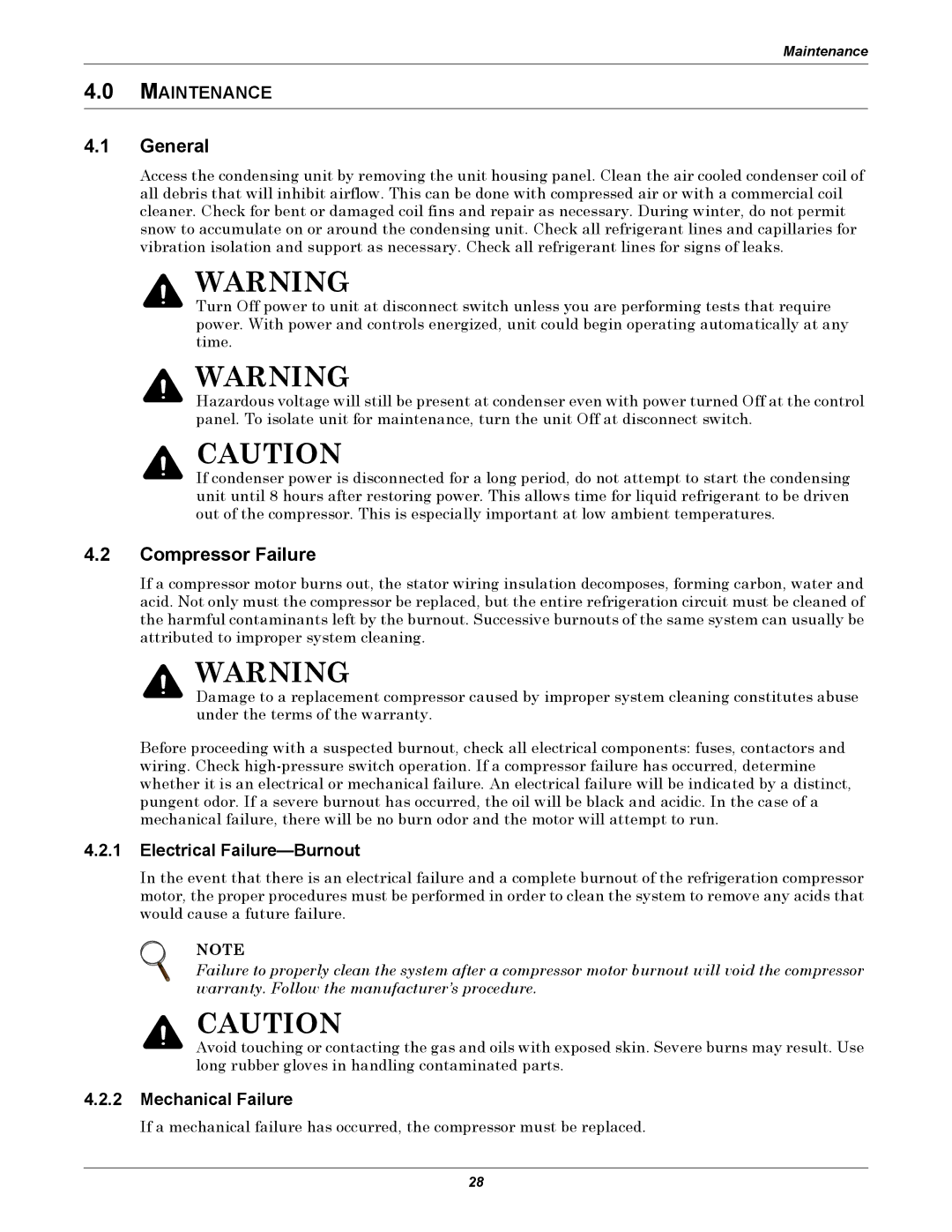
Maintenance
4.0MAINTENANCE
4.1General
Access the condensing unit by removing the unit housing panel. Clean the air cooled condenser coil of all debris that will inhibit airflow. This can be done with compressed air or with a commercial coil cleaner. Check for bent or damaged coil fins and repair as necessary. During winter, do not permit snow to accumulate on or around the condensing unit. Check all refrigerant lines and capillaries for vibration isolation and support as necessary. Check all refrigerant lines for signs of leaks.
! WARNING
Turn Off power to unit at disconnect switch unless you are performing tests that require power. With power and controls energized, unit could begin operating automatically at any time.
! WARNING
Hazardous voltage will still be present at condenser even with power turned Off at the control panel. To isolate unit for maintenance, turn the unit Off at disconnect switch.
! CAUTION
If condenser power is disconnected for a long period, do not attempt to start the condensing unit until 8 hours after restoring power. This allows time for liquid refrigerant to be driven out of the compressor. This is especially important at low ambient temperatures.
4.2Compressor Failure
If a compressor motor burns out, the stator wiring insulation decomposes, forming carbon, water and acid. Not only must the compressor be replaced, but the entire refrigeration circuit must be cleaned of the harmful contaminants left by the burnout. Successive burnouts of the same system can usually be attributed to improper system cleaning.
! WARNING
Damage to a replacement compressor caused by improper system cleaning constitutes abuse under the terms of the warranty.
Before proceeding with a suspected burnout, check all electrical components: fuses, contactors and wiring. Check
4.2.1Electrical Failure—Burnout
In the event that there is an electrical failure and a complete burnout of the refrigeration compressor motor, the proper procedures must be performed in order to clean the system to remove any acids that would cause a future failure.
NOTE
Failure to properly clean the system after a compressor motor burnout will void the compressor warranty. Follow the manufacturer’s procedure.
! CAUTION
Avoid touching or contacting the gas and oils with exposed skin. Severe burns may result. Use long rubber gloves in handling contaminated parts.
4.2.2Mechanical Failure
If a mechanical failure has occurred, the compressor must be replaced.
28
